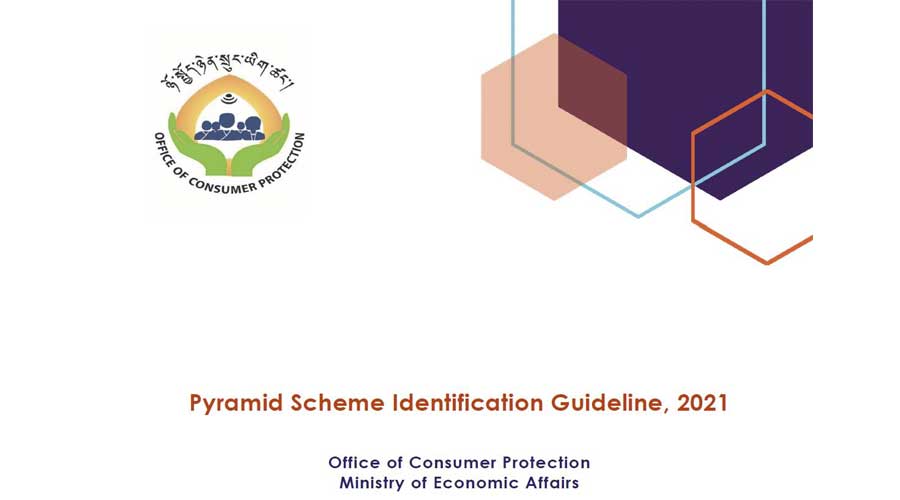
Despite being an unlawful trade practice, pyramid scheme businesses are continuing to grow in the country. Therefore, the Office of the Consumer Protection (OCP) under the Economic Affairs Ministry has developed Pyramid Scheme Identification Guideline to effectively monitor the prevalence of pyramid scheme businesses in the country.
Pyramid scheme is a fraudulent system of making money based on recruiting an ever-increasing number of memberships or investors. Over the past two years, the Office of the Consumer Protection received six complaints against such illegitimate businesses.
Seeking anonymity, a resident in Thimphu narrated how she was influenced by her friend to join QNET Business with a promise of reaping monetary benefits.
Her friend is one of the members of QNET Business, which is categorised as a pyramid scheme business by the OCP. It is multi-leveling online marketing business that deals with wellness products, personal and homecare products.
So, she accordingly sought financial help from her relatives and arranged Nu 120,000 and paid the amount to her friend.
However, as weeks went by, there was no update on the matter from her friend. Sensing something is wrong, she inquired the OCP and found out she was duped.
“She told me I need to invest Nu 10,000 to join as a member of the said online business. When I told her, I don’t have that many money, she agreed to pay for me. Then, I trusted her. If it’s a fraudulent practice, she would not have paid on my behalf. My family was hopeful to earn as we had a patient at home,” she added.
Through the OCP’s intervention, she recouped Nu 60,000 from her friend. Her friend still owes her Nu 16,000.
Like her, some complainants got in touch with the OCP. But a few other customers like Mani Kumar Gurung say products purchased from pyramid scheme business have benefitted them.
“Many people who had health problems like kidney diabetic and partial paralysis people have been benefitted. My parents, after receiving some supplements, has improved. On the other hand, through business point of view, it is not always that the person who is recruited or who joins the business first gets the benefit. People have choice.”
However, the OCP still cautions people from getting involved in such pyramid scheme.
“There are lots of elements of deceptive practices, unfair trade practices and then misleading representation of goods and services, which lead to aggrieving consumers and impact their economic interest. That’s why these pyramid schemes are considered as unfair trade practices,” explained Jigme Dorji, Chief Programme Officer of OCP.
Since the implementation of Consumer Protection Rules and Regulations in 2015, the office banned pyramid scheme businesses such as Magnessa, Oriens, The Enagic Machines or Kangen Water Filter Business, Crowd 1, OnPassive and QNET so far.
According to the office, the need of the hour is to bolster awareness on pyramid scheme to protect gullible people, especially housewives, youth and villagers from falling prey to it.
The OCP also says that any individual, who repeatedly influences people to join the pyramid scheme, will be dealt as per the law.
Krishna Ghalley
Edited by Pema Lhaden









